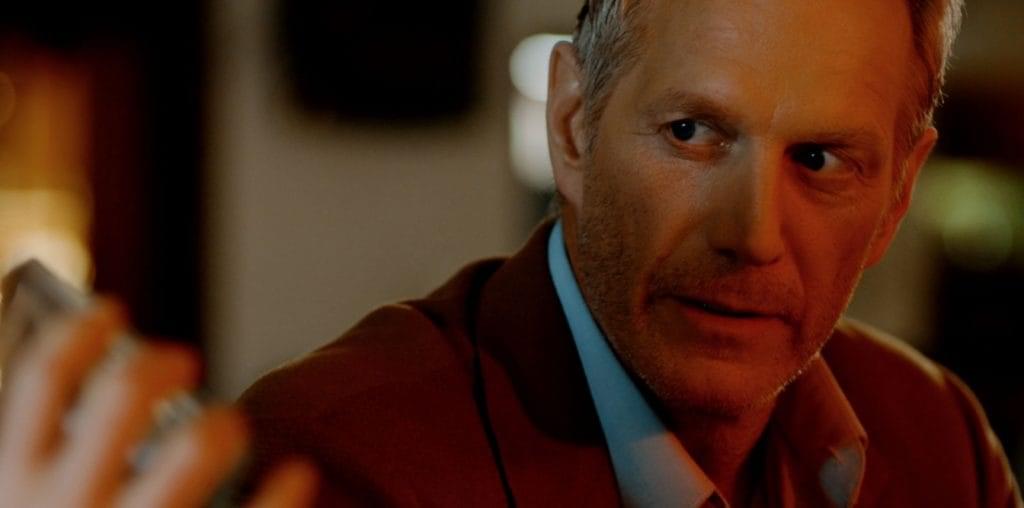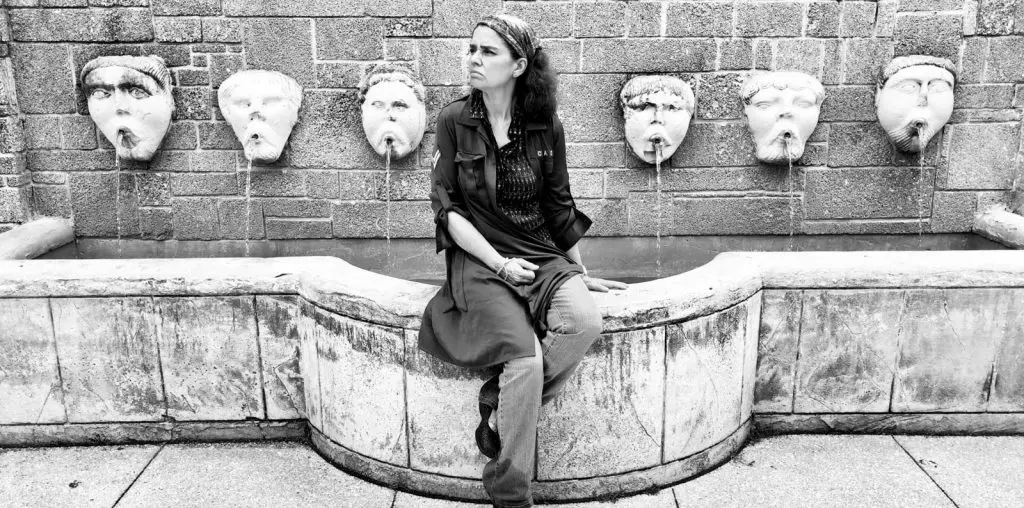
BOOTLEG FILES 528: “Cucumber Castle” (1970 British TV film starring two-thirds of the Bee Gees).
LAST SEEN: The film is on YouTube.
AMERICAN HOME VIDEO: It was briefly on VHS video in the 1970s.
REASON FOR BOOTLEG STATUS: Simply the biggest flop in the careers of a legendary music group.
CHANCES OF SEEING A COMMERCIAL DVD RELEASE: Nope.
In 1967, music producer Robert Stigwood unleashed the Bee Gees on the rock scene. Consisting of three members of the Gibb family (Barry, Maurice and Robin) plus Vince Melouney and Colin Petersen, the group rapidly became a fixture on the U.S. and U.K. charts.
But almost as quickly as the Bee Gees rose to popularity, their cohesion fell apart. Melouney left the group at the end of 1968. Robin Gibb, eager to start a solo career, withdrew following production on their 1969 album “Odessa” Stigwood steered the remaining Bee Gees into the production of a new album called “Cucumber Castle,” which was to accompany a film of the same title.
In the summer of 1969, filming began on “Cucumber Castle.” The cast was mostly recruited from British TV comedies, with movie horror icon Vincent Price dropping in for a few scenes. Maurice Gibb’s then-wife, pop singer Lulu, also turned up, while another Stigwood band called Blind Faith – consisting of Eric Clapton, Ginger Baker, Steve Windood and Ric Grech – was seen in concert footage shot earlier that year at London’s Hyde Park.
But the surplus of talent created a shocking deficit of entertainment. “Cucumber Castle” turned out to an embarrassing failure – a comedy completely lacking in laughs, punctuated with dreary musical interludes. It would not be an exaggeration to claim that this was among the worst cinematic endeavors ever made on British soil.
“Cucumber Castle” opens with a frail king (Frankie Howerd) on his deathbed. “I’m dying! I’m dying!” he proclaims in Shakespearean resonance as his homely nurse (Pat Coombs) swoons over him. The king announces that he is dividing his kingdom among his sons, with Prince Frederick (Barry Gibb) becoming the King of Cucumber and Prince Marmaduke (Maurice Gibb) the King of Jelly.
The king never actually dies – he pops up throughout the film, yelling “I’m dying!” before making some eccentric quip directly to the camera. It isn’t that funny the first time it happens, and by the fourth time the pain becomes heavy.
The new kings host a joint party, with Frederick greeting his guests by proclaiming, “My cucumber and I welcome you to Cucumber Castle.” Marmaduke offers a “toast” to his brother – two slices of bread in a toaster. (And that is probably the funniest thing in the film!)
Vincent Price, as Wicked Count Voxville, conspires to have the royal brothers kill each other in a duel. However, the monarchs are utterly inept at dueling, and a variety of different challenges (swords, guns, etc.) results in neither man being hurt.
Later on, Frederick and Marmaduke dress like birds (huh?) and engage in “peasant shooting.” The Cucumber Quartet, led by Lady Margerie Pee (Eleanor Bron), attempts to play a musical composition but is assaulted by insects and inclement weather. Spike Milligan arrives as the Irish jester, exclaiming that he “always wanted to play the Palace” – he gets decapitated for failing to make Frederick laugh.
The kings then play tennis while wearing armor, and later get into their bird costumes and sit in a tree, where they do a fifth-rate imitation of a Peter Cook-Dudley Moore routine. The kings/birds then watch footage of a Blind Faith concert, while an A-list of rock royalty including Mick Jagger, Roger Daltrey, Marianne Faithfull and Donovan can be glimpsed in the crowd around the stage.
By the end of the film, the peasants of the Kingdom of Cucumber loot the castle and rob the king of his belongings. And the dying old king announces that he’s made a return to good health.
Every now and then, the weird comedy segments are interrupted for a song. In the two-man version of the Bee Gees, the focus is almost entirely on Barry Gibb walking about the countryside, with brother Maurice occasionally seen tagging behind him. But Barry had little on-screen charisma and his material – including such songs as “Don’t Forget to Remember Me,” “The Lord,” “I Was the Child” and “My Thing” – represented some of the worst of the Bee Gees’ releases. Indeed, the music breaks achieve the impossible by making viewers hungry to go back to the bad comedy.
For her part, Lulu (cast as the king’s maid) seemed to think that the show was hers, and her two numbers – the Barry Gibb-penned “Morning of My Life” and, of all things, the Simon and Garfunkel hit “Mrs. Robinson” – found the singer winking and vamping her way across the screen in a diva-worthy manner that was miles ahead of the behavior one expects from a minor guest star in a variety show.
“Cucumber Castle” was filmed in and around Stigwood’s 36-acre estate at Stanmore, with Stigwood joining the fun by dressing up as a chicken for a brief gag. Barry and Maurice Gibb were given credit for developing and writing the film, but its ramshackle nature was so weak that one can suspect that very little was actually planned in advance. Indeed, Maurice Gibb later admitted that much of the film was ad-libbed on location, with the Gibbs expressing endless delight in whatever zany funnymen Frankie Howerd and Spike Milligan had to offer.
But there was no laughing over the physical production itself. Much of the film required exterior shooting, but a very rainy summer forced the production to go over schedule and budget. This resulted in the cancellation of a proposed North American tour for the Gibbs. Poor security resulted in the theft of a van containing Maurice Gibb’s prized Les Paul guitar.
Also missing from “Cucumber Castle” was Colin Petersen. He served as the group’s drummer since 1967 and was part of the studio recording on the “Cucumber Castle” album. What happened to him has been the subject of different reporting – some claim that he was not eager to act in the film, while others claim that he appeared in the music segments of the film only because he found the comedy segments unfunny. In any event, Stigwood fired him while the film was in progress and had his credit removed from the “Cucumber Castle” album. Petersen would later sue Stigwood and his ex-bandmates for breach of contract, but he would lose his court case. While Petersen’s litigation played out, Robin Gibb was successfully lured back to join his brothers in the Bee Gees – and his return included talk of updating “Cucumber Castle” with new footage, but that never took place.
Stigwood originally planned “Cucumber Castle” as a theatrical film, but it proved to be too short and too fey for the big screen. After the hoopla surrounding the reunion of the three Gibb brothers with their album “2 Years On” in November 1970, the BBC agreed to telecast the film on December 26, 1970, but it made a poor impression on audiences and it was neither rebroadcast nor sold to foreign TV markets.
As the Bee Gees saw their career ascend in the 1970s, they tried to forget the “Cucumber Castle” mess – although they never learned from the cinematic mistakes, as witnessed in the dreadful 1978 film “Sgt. Pepper’s Lonely Hearts Club Band.” A small U.S. company called Video Tape Network briefly released “Cucumber Castle” on VHS during the early part of the home video era, but since then it has been unavailable in any commercial home entertainment format. Bootleg videos of the title have circulated for years among Bee Gees fans, and unauthorized postings of the film are easy to locate on YouTube.
IMPORTANT NOTICE: The unauthorized duplication and distribution of copyright-protected material, either for crass commercial purposes or profit-free s***s and giggles, is not something that the entertainment industry appreciates. On occasion, law enforcement personnel boost their arrest quotas by collaring cheery cinephiles engaged in such activities. So if you are going to copy and distribute bootleg material, a word to the wise: don’t get caught. Oddly, the purchase and ownership of bootleg DVDs is perfectly legal. Go figure!


I’ve got the mentioned VHS release of Cucumber Castle but can’t figure out how to sell it. No one can figure out its value. L
I’m willing to buy it from you if you still have it. Thanks in advance.
Phil – most assuredly yes, the Ringo-Harry Nilsson version. I am a huge Nilsson fan but despite that Son of Dracula is a tough watch. Except for some of the musical numbers. Has that ever had a legit VHS or DVD release? Could be a good subject for a future column if you can stay awake through it 🙂
Stigwood was a very high flier for many years, and the Bee Gees have to be one of the biggest come-back stories in music history. I read that shortly before Stigwood died, he was trying to launch a Broadway version of “Saturday Night Fever.”
I haven’t watched “Son of Dracula” yet, John – I assume you mean the Ringo version and not the Lon Chaney Jr. flick – but I understand it is pretty atrocious. It has been on my to-do list for a while and I hope to get to that one in the next few weeks.
Phil, I actually HAVE a copy of this thing (I collect these hard-to-find oddities). I got it from a rabid Bee Gees fans and it is almost as hard to watch as “Son of Dracula.” It’s so bad that I have sworn off cucumbers forever… 🙂